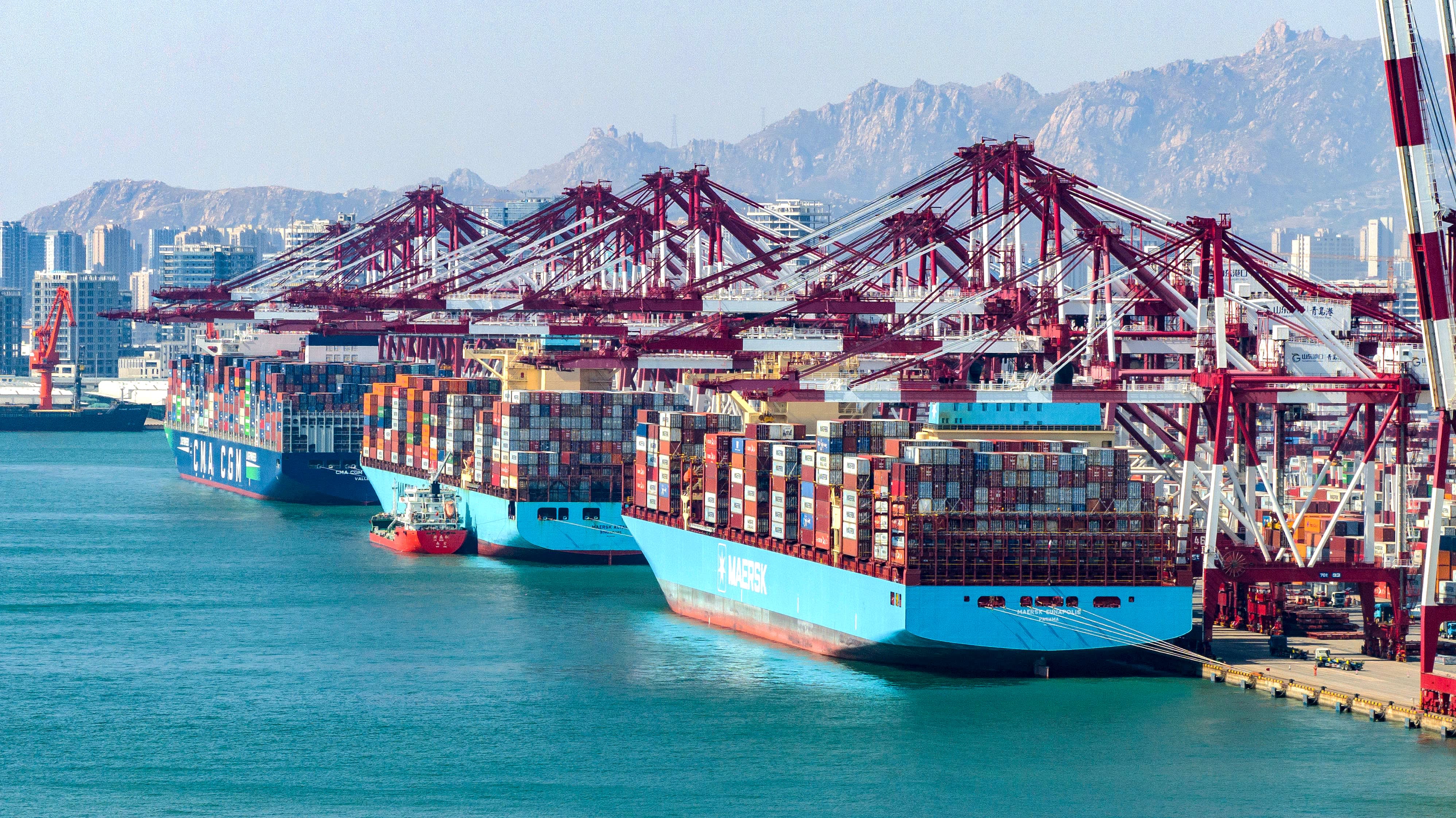
The United Nations shipping agency is on the cusp of introducing binding regulations to phase out fossil fuel use in global shipping — with the world’s first-ever global emissions levy on the table.
The International Maritime Organization (IMO) will this week hold talks at its London headquarters to hammer out measures to reduce the climate impact of international shipping, which accounts for around 3% of global carbon emissions.
Some of the measures on the table include a global marine fuel standard and an economic element, such as a long-debated carbon levy or a carbon credit scheme.
If implemented, a robust pricing mechanism in the shipping sector would likely be considered one of the climate deals of the decade.
An ambitious carbon tax is far from a foregone conclusion, however, with observers citing concerns over sweeping U.S. tariffs, a brewing global trade war and reluctance from members firmly opposed to any kind of levy structure.
Sara Edmonson, head of global advocacy at Australian mining giant Fortescue, described the talks as “absolutely historic,” particularly given the potential for a landmark carbon levy.
“I think it would be an absolute game-changer. No other industry on a global level has made a commitment of this size and I would argue most countries haven’t made a commitment of this size,” Edmondson told CNBC via telephone.
She added, however, that “the jury is still very much out” when it comes to a global carbon price.
It’s not really a question of whether they get agreement, it’s just how ambitious it is, how effective it is and how many unhappy people there are.John MaggsClean Shipping Coalition
“There are also a lot of discussions around levy-like structures because obviously the word levy in very polarized countries like the U.S., like Australia and even in China, can be very challenging. But I think there are really good discussions around levy-like structures that would ultimately have an equivalent effect,” Edmondson said.
The IMO’s Marine Environment Protection Committee (MEPC) is scheduled to conclude talks on Friday.
‘A great opportunity’
Some of the biggest proponents of a global greenhouse gas emissions charge on the shipping industry include Pacific Island states, such as Fiji, the Marshall Islands and Vanuatu, and Caribbean Island states, including Barbados, Jamaica and Grenada.
Those opposed to a carbon levy, such as Brazil, China and Saudi Arabia, have raised concerns over economic competitiveness and increased inequalities.
“For countries like Vanuatu … we see the UNFCCC isn’t moving fast enough — and this is the great opportunity,” Vanuatu Minister Ralph Regenvanu said Monday.
The UNFCCC refers to the United Nations Framework Convention on Climate Change, a multilateral treaty that has provided the basis for international climate negotiations.
If adopted, it would be “the first industry-wide measure adopted by a multilateral UN organisation with much more teeth than we could get in the UNFCCC process,” Regenvanu said.
Delegates at the IMO agreed in 2023 to target net-zero sector emissions “by or around” 2050 and set a provision to finalize a basket of mid-term carbon reduction measures in 2025.
Calls for a ‘decisive’ economic measure
“We’re going to get something,” John Maggs, an accredited representative of the Clean Shipping Coalition to the IMO, told CNBC via telephone.
“The timetable is quite clear and they are working really, really hard to stick to it. So, I think it’s not really a question of whether they get agreement, it’s just how ambitious it is, how effective it is and how many unhappy people there are,” Maggs said.
Clean Shipping Coalition’s Maggs warned that a sizable gap still exists between progressive and more conservative forces at the IMO.
“My feeling from the progressive side is that people are optimistic and confident because the case they are making is a sound one and they’ve got the technical expertise to back them up,” Maggs said.
“But, at the end of the day, China and Brazil and others aren’t just going to go, ‘OK you can have your way.’ There is going to be payment exacted in some way or other,” he added.
The international shipping sector, which is responsible for the carriage of around 90% of global trade, is regarded as one of the hardest industries to decarbonize given the vast amounts of fossil fuels the ships burn each year.
Angie Farrag-Thibault, vice president of global transport at the Environmental Defense Fund, an environmental group, said a successful outcome at the IMO would be an ambitious global fuel standard and a “decisive” economic measure to ensure shipping pollution is significantly reduced.
“These measures, which should include a fair disbursement mechanism that uses existing climate finance structures, will encourage ship owners to cut fossil fuel use and adopt zero and near-zero fuels and technologies, while supporting climate-vulnerable regions at the speed and scale that is needed,” Farragh-Thibault said.
Source: CNBC
